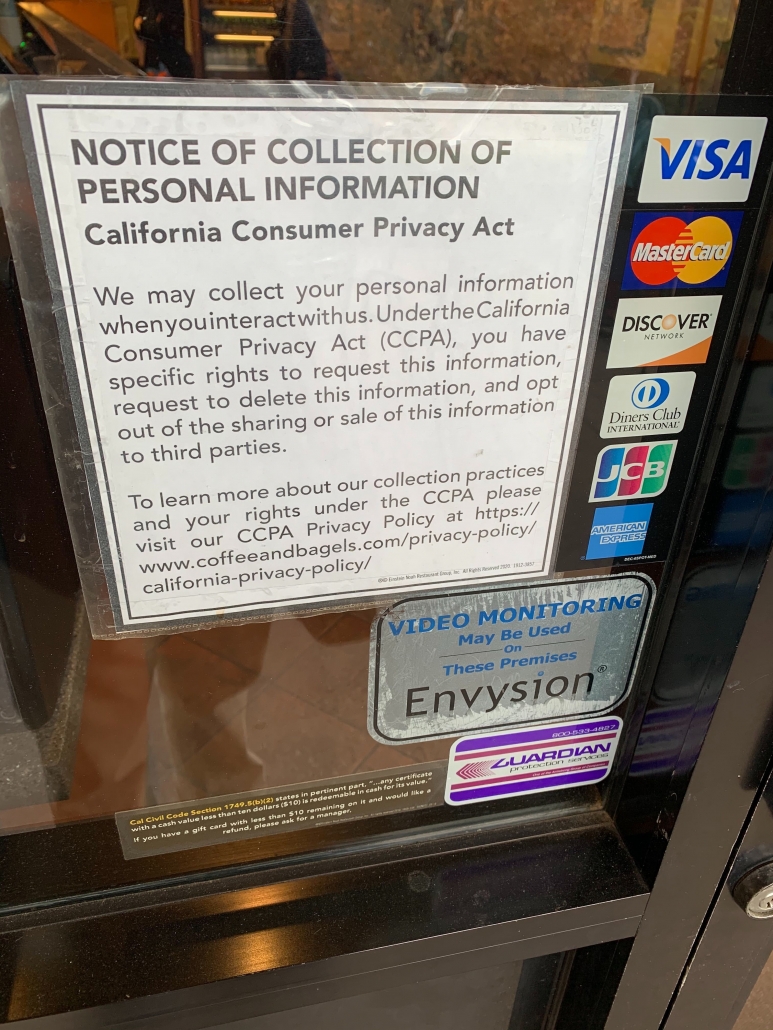California Consumer Privacy Act (CCPA) Goes Into Effect
Home Help Center California Consumer Privacy Act (CCPA) Goes Into Effect

Unbeknownst to many consumers, the country’s most advanced consumer privacy act just went into effect on January 1, 2020. The California Consumer Privacy Act (CCPA) outlines some of the strongest protections for individual consumers and the companies they choose to do business with. However, some early reporting shows that a lot of people are still not aware of the new legislation.
DOWNLOAD OUR NEW CCPA INFOGRAPHIC HERE
CCPA provides new protections in the event of a data breach, new tools for consumers to find out exactly what information a company has collected and sold or shared and more. Under the CCPA, consumers also have the right to delete some personal information and opt-in for children. In the CCPA personal information is defined as information that identifies, relates to, describes, is capable of being associated with, or could reasonably be linked, directly or indirectly, with a particular consumer or household. Personal information under the CCPA does not include publicly available information.
Companies doing business in California — whether they are located there or not, or simply have customers or users who reside in the state — must provide more than just the proof of information they have collected. If an individual consumer does not want their information sold to third parties, the CCPA states they have the right to opt-out and the companies must comply. Failure to comply could result in significant fines, penalties and damage awards of up to $7,500 per consumer.

That has been a sticking point for a number of businesses, though.
There are questions about how businesses will comply with the do not sell requirements. Some companies are claiming that if they “share” their users’ data with an outside company, they are in compliance. The supporters of the CCPA have said selling or sharing is the same thing, though companies like Facebook, CVS, Indeed and others argue their methods of providing users’ information to outsiders does not violate the CCPA.

Some of the other responsibilities of businesses include a child opt-in requirement, a website notice requirement, a duty to educate, vendor agreements, third-party transfers and cybersecurity protections to prevent a data breach. In the event of a data breach, consumers can now sue to recover up to $750 in costs per data breach. For more information about consumer rights in the event of a data breach or other CCPA rights, click here.

Though the California Consumer Privacy Act went into effect on January 1, businesses have until July 1 to comply before enforcement—and presumably, punitive action—begins. It will be interesting to see both how this plays out for businesses that make a lot of money by selling their customers’ information, and how many other states follow suit with legislation of their own.
Sign Up For Identity Theft and Data Breach News
Sign up for the In The Loop to stay in the know about potential threats to your identity/privacy and tips to keep you safe. Our monthly breach alert keeps you posted on the latest trends and activity in the world of breaches.
Free Identity Theft Assistance
Contact the Identity Theft Resource Center for toll-free, no-cost assistance at 888.400.5530.
This news is currently evolving and we will update as announcements are made available.
You might also like…
How much information are you putting out there? It’s probably too much. To help you stop sharing Too Much Information, sign up for the In the Loop.
Get ID Theft News
Stay informed with alerts, newsletters, and notifications from the Identity Theft Resource Center

